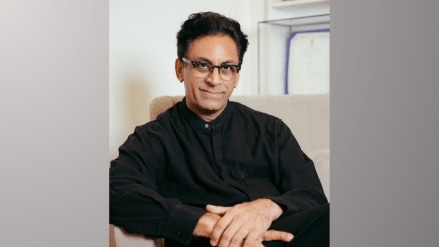Effective strategy is a by-product of knowledge, experience and interdisciplinary thinking, and no one knows that better than Ram Madhvani, co-founder, director & producer, Equinox Films, Ram Madhvani Films & Equinox Virtual, who has dabbled with ad film making and cinema, and now gaming and virtual experiences. In this rare interview, the Cannes-award winner spoke to Alokananda Chakraborty about the tech-led changes in the world of media and advertising. Edited excerpts:
With the advertising festival season well and truly upon us, which areas of advertising in India have improved beyond recognition and where would you say India needs to work harder?
Digital and social media advertising has improved a lot in our country, and rightly so, considering the large market of social media users. We get to see different ways in which brands have embraced advertising on digital platforms, how they utilised technology and creativity to create some outstanding work. Craft has improved but we need more interactive conversations with the consumer, and more virtual reality (VR) and augmented reality (AR). It all comes down to the experience created for the audience, and embracing tech like AR and VR is the way forward.
You have a varied experience — from ad film making to cinema to OTT. Which is the sector where emerging technology has had the biggest impact?
Across industries it’s all about AI now, and about algorithms and data analysis. The tech industry is always updating its methods. It’s like we’re living in the future while living in the present. The media and entertainment industry definitely shows the impact of these emerging technologies more intensely than any other industry, since it is such a future medium.
With AI coming into use in ad making in a big way, what kind of jobs do you see becoming less important?
AI needs artistes with different skill sets. It’s a tool that needs humans to operate it, and to feed data and information into it to help it function seamlessly. New AI tech and art jobs will be redefined, and it will change the way we look at the business and work within it.
In terms of skills, do you see our teams catching up with the rest of the world where leveraging AI in advertising is concerned?
AI is an exciting new tool with endless possibilities. We can now gauge the audience’s behaviour, their interests, and their purchasing patterns at our fingertips. More and more targeted, effective, and personalised ads are made possible this way.
Which business segment has changed the most over the years and how?
As the cliché says, change is the only constant. But thankfully we haven’t been constant while the changes were (and are) happening. We have changed over the years. We have changed from making ads for television to making ads across formats. We changed from making films solely for the theatre experience, to making movies for the theatres as well as the OTT screens. Big screen or couch, we have so much choice now. We have all evolved in the last few years, especially with respect to how we view content. It’s like a whole new world of films out there. That being said, we are in the business of feelings and while the business has changed, human emotions have not.
With connected TV changing viewer consumption habits over the past couple of years, how can advertisers leverage this segment better because while viewership is moving in this direction, studies show advertisers are not too enthusiastic yet…
Here’s the thing — we have to understand how people watch stuff on these platforms. It’s not about blasting ads at them, it’s about creating targeted experiences that are engaging. Connected TV can be a powerful tool, but it needs the right approach. By creating engaging, targeted ads that feel like part of the viewing experience, advertisers can win over this audience. It’s all about keeping viewers engaged, not feeling like they’re being interrupted! Think interactive ads, product placements that fit seamlessly — show them something they’ll care about, and they might just pay attention.
